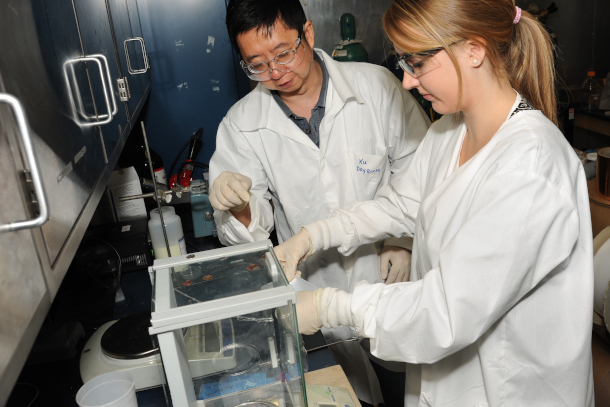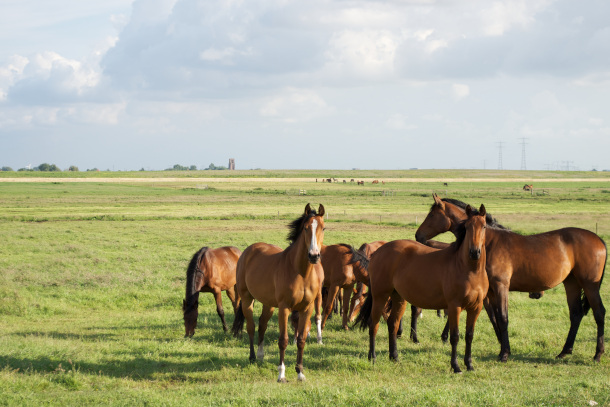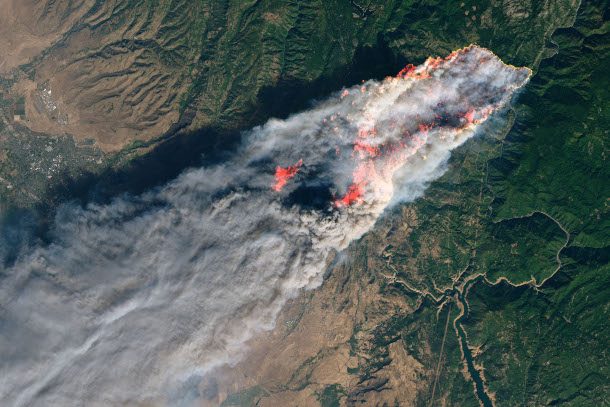Beyond the Headlines
Air Date: Week of June 5, 2020

Science denial may have ties to pop culture portrayals of scientists as ‘wacky’ or ‘nerdy’, downplaying their competence. (Photo: U.S. Army Combat Capabilities Development Command, Flickr, CC BY-SA 2.0)
This week, Environmental Health News Editor Peter Dykstra and Host Steve Curwood examine how “mad scientist” tropes in popular culture may damage our trust in the warnings of real scientists. Then, a new study linking fracking with reproductive health problems in horses. And in environmental history, they look back to the huge 1996 settlement paid by California energy company Pacific Gas & Electric for its dumping of a carcinogen.
Transcript
CURWOOD: It’s Living on Earth, I’m Steve Curwood.
It's time now for us to take a look beyond the headlines with Peter Dykstra. Peter’s an editor with Environmental Health News, that's EHN.org, and dailyclimate.org. He is joining us now on the line from Atlanta, Georgia. Hey there, Peter, what's going on? What do you have for us today?
DYKSTRA: Hi Steve. You know, I've been thinking a lot this week, seeing these scenes in the lake of the Ozarks, the East coast, the West coast and beaches, nighttime and parties, of people pretty much ignoring the stern advice from scientists about maintaining social distance. That reminds me about a long-term problem our society has with scientists.
CURWOOD: And that would be?
DYKSTRA: Well, go back to the 1818 when Mary Shelley published her epic novel "Frankenstein," about Dr. Victor Frankenstein, the classic evil scientist from culture, creating a bad thing, the Frankenstein monster. You take that all the way to the 1990s and you have Dr. Evil, the comic version of an evil scientist, and many, many more sort of cementing the evil scientist brand of why we shouldn't like or trust what we hear from scientists, whether it's climate change or the coronavirus.
CURWOOD: Well, and not just evil scientists, though. I mean,
DYKSTRA: Yeah, I've listed several of them. I wrote about this for EHN this past week. You've not just got the evil scientists but the more benign types. Let's just take a minute, Steve, you have to have a favorite goofy scientist or evil scientist from years of TV or movies. Who's your favorite?
CURWOOD: Well, I guess as a kid, I liked Mr. Wizard, but of course, in the movies, Eddie Murphy, the nutty professor, he's the guy!
DYKSTRA: Oh, Eddie Murphy was great. That was a remake of a 1963 movie, The Nutty Professor, played by Jerry Lewis. That's a lasting impression that we have. You've not just got the evil scientist but the more benign type, the goofballs like Doc Brown from the Back to the Future movies, socially inept scientists like the cast of The Big Bang Theory--just completed the 12 year super successful series run on TV--all the time cementing the ideas that scientists are the ones we trust least. They're the ones that got roughed up in gym class or picked last for basketball, or who sat out the senior prom. And all of those things create a lasting image of scientists in pop culture that are probably a huge factor in why we have trouble listening to scientists when they tell us what's needed to beat the coronavirus or they tell us what's needed to beat climate change.
CURWOOD: Yeah, it's a tough one too. And science knows best about climate change. science knows best about pandemics. Hey, what else do you have for us this week, Peter?

Fracking has been linked to a birth defect in young horses, whereby nursing foals inhale milk rather than swallowing it. (Photo: Feltkamp, Flickr, CC BY 2.0)
DYKSTRA: One of my colleagues at EHN, Kristina Marusic, has written for several years on potential health problems in areas where fracking is dominant. A few years ago, she wrote about links between fracking and depression. Just recently she published a story based on a peer-reviewed bit of science. They studied horses owned by the same man in two areas, one where there was fracking, one where there wasn't, and the horses in the fracking zone had some serious problems with reproduction: high risk pregnancies that led to a big disparity in healthy births among the horses.
CURWOOD: Hey, let's take a look at history now Peter. Right now this is June of 2020. What do you see going back?
DYKSTRA: Let's go back to June of 1996. Specifically June 12th, when Pacific Gas and Electric, PG&E, one of the biggest utilities in the country, agreed to pay a third of a billion dollars--$333 million--to residents of the small town of Hinkley for contaminating their drinking water supply with chromium 6, one of the biggest, baddest pollutants across the country. But PG&E has continued to have a bad track record after that one third of a billion dollar-payout. And then in 2018, the most famous, the worst, the most tragic of all where malfunctions in PG&E power lines set a blaze that burnt the town of Paradise, California to the ground. PG&E has already committed to paying $13 billion to the residents and former residents and survivors of residents in Paradise. And with such a big amount on the liability side, Pacific Gas and Electric has declared bankruptcy.

Pacific Gas & Electric has been criticized by U.S. District Judge William Alsup, saying the company poses a threat to the safety of the people of North California. Joshua Stevens, NASA Goddard Space Flight Center, Flickr Creative Commons)
CURWOOD: Peter Dykstra is an editor with Environmental Health News. That's EHN.org and dailyclimate.org. We'll talk to you again real soon.
DYKSTRA: All right, Steve, thanks a lot. Talk to you soon.
CURWOOD: And there's more on these stories at the Living on Earth website. That's LOE.org.
Links
Environmental Health News | “They Blinded Us with SCIENCE!”
Environmental Health News | “Fracking Linked to Rare Birth Defect in Horses: Study”
KQED News | “Judge Rips PG&E for Poor Safety Record Leading to Wildfires”
Living on Earth wants to hear from you!
Living on Earth
62 Calef Highway, Suite 212
Lee, NH 03861
Telephone: 617-287-4121
E-mail: comments@loe.org
Newsletter [Click here]
Donate to Living on Earth!
Living on Earth is an independent media program and relies entirely on contributions from listeners and institutions supporting public service. Please donate now to preserve an independent environmental voice.
NewsletterLiving on Earth offers a weekly delivery of the show's rundown to your mailbox. Sign up for our newsletter today!
 Sailors For The Sea: Be the change you want to sea.
Sailors For The Sea: Be the change you want to sea.
 The Grantham Foundation for the Protection of the Environment: Committed to protecting and improving the health of the global environment.
The Grantham Foundation for the Protection of the Environment: Committed to protecting and improving the health of the global environment.
 Contribute to Living on Earth and receive, as our gift to you, an archival print of one of Mark Seth Lender's extraordinary wildlife photographs. Follow the link to see Mark's current collection of photographs.
Contribute to Living on Earth and receive, as our gift to you, an archival print of one of Mark Seth Lender's extraordinary wildlife photographs. Follow the link to see Mark's current collection of photographs.
 Buy a signed copy of Mark Seth Lender's book Smeagull the Seagull & support Living on Earth
Buy a signed copy of Mark Seth Lender's book Smeagull the Seagull & support Living on Earth

